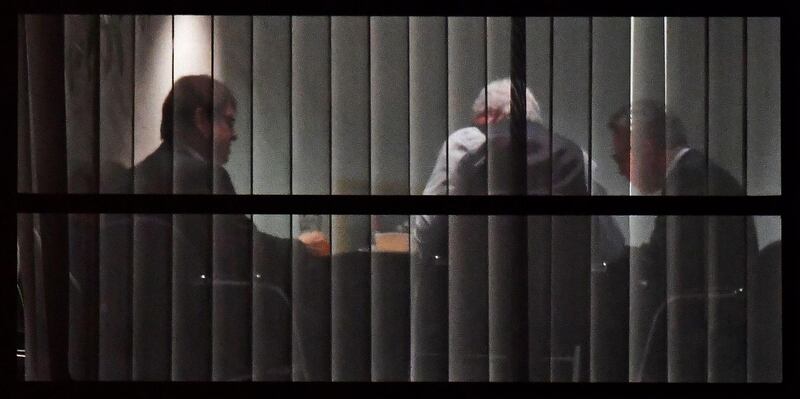German Chancellor Angela Merkel’s conservative Union bloc and the centre-left Social Democrats appeared Thursday to be closing in on an agreement that would allow the parties to enter into formal coalition talks.
Heading into the final day of preliminary negotiations between the two sides, Ms Merkel was upbeat, telling reporters in Berlin that “large obstacles” remained but she intended to push for new compromises.
“The people expect us to find solutions,” she said.
Following a dismal result in Germany’s September 24 election, the Social Democrats initially vowed not to renew the ‘grand coalition’ of Germany’s biggest parties. Party leaders reconsidered after Ms Merkel’s attempts to form a coalition with two smaller parties collapsed.
Germany president Frank-Walter Steinmeier appealed to the negotiators on Thursday to consider their responsibility toward Europe, not just their own parties and political futures.
Closed-door talks this week have centred on whether the parties can find the basis to open formal negotiations on a coalition agreement to form a new government.
Should the Social Democrats and the Christian Democratic Union and Bavarian-only Christian Social Union not be able to form a coalition, the only other paths ahead would be a Merkel-led minority government or fresh elections.
Social Democratic leader Martin Schulz told reporters ahead of the final round of talks that they had already made progress and found common ground on “many points”. However, Mr Schulz, a former president of the European Parliament, said any new government needed to “strengthen Europe”.
“What we need in Europe is the same as what we need on a national level, we need ... more cohesion,” he said.
Germany currently has a caretaker government, limiting Ms Merkel’s ability to launch major initiatives at a time when French president Emmanuel Macron has pressed for ambitious reforms in the European Union.
The final round of talks focused on thorny issues such as Germany’s migration policy, health care and public finances. The discussions were expected to conclude late Thursday or early Friday morning.
The steady but slow pace of the talks was summed up by one leading Social Democrat, Ralf Stegner, who drew on a late German Nobel laureate for the right metaphor.
“The intensity is increasing, and since Guenther Grass we know that progress is a snail,” Mr Stegner said.
Even if the two sides decide they have the basis for coalition talks, such negotiations would require the approval of a Social Democrat congress on January 21, and the party’s leadership will have to overcome strong reservations among members.






